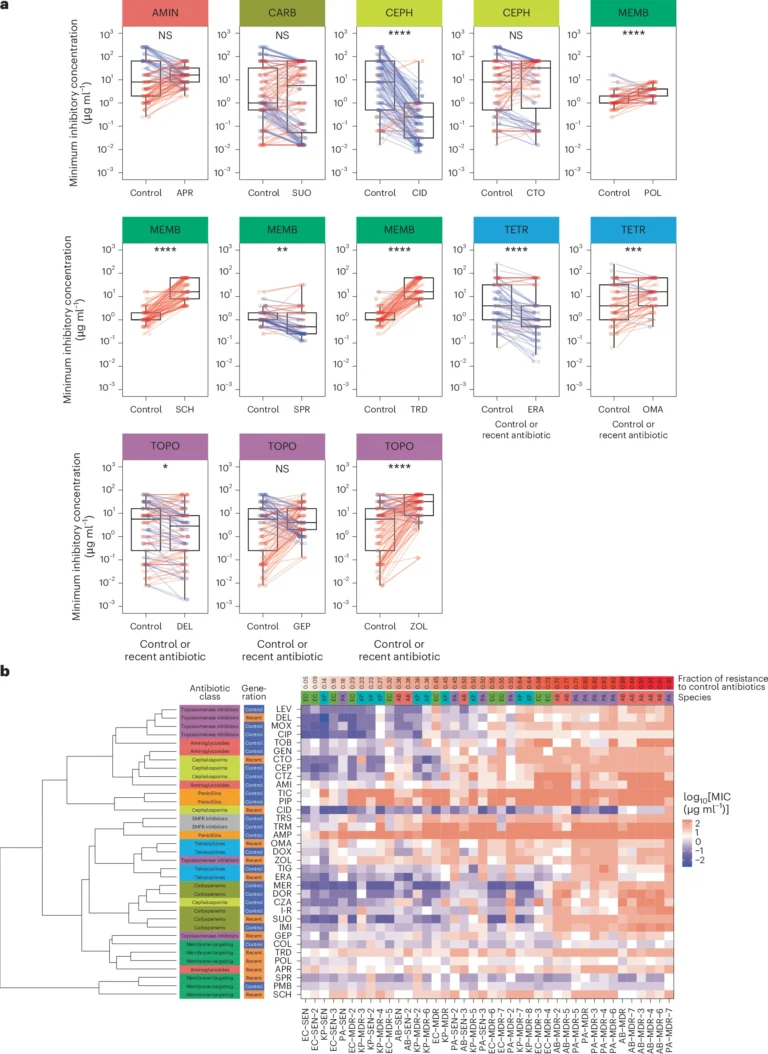- Szerzők: Lejla Daruka, Márton Simon Czikkely, Petra Szili, Zoltán Farkas, Dávid Balogh, Gábor Grézal, Elvin Maharramov, Thu-Hien Vu, Levente Sipos, Szilvia Juhász, Anett Dunai, Andreea Daraba, Mónika Számel, Tóbiás Sári, Tamás Stirling, Bálint Márk Vásárhelyi, E
- Megjelenés: 2025, NATURE MICROBIOLOGY
- URL: https://www.nature.com/articles/s41564-024-01891-8
- MTMT azonosító: 35685373
Absztrakt: Despite ongoing antibiotic development, evolution of resistance may render candidate antibiotics ineffective. Here we studied in vitro emergence of resistance to 13 antibiotics introduced after 2017 or currently in development, compared with in-use antibiotics. Laboratory evolution showed that clinically relevant resistance arises within 60 days of antibiotic exposure in Escherichia coli, Klebsiella pneumoniae, Acinetobacter baumannii and Pseudomonas aeruginosa, priority Gram-negative ESKAPE pathogens. Resistance mutations are already present in natural populations of pathogens, indicating that resistance in nature can emerge through selection of pre-existing bacterial variants. Functional metagenomics showed that mobile resistance genes to antibiotic candidates are prevalent in clinical bacterial isolates, soil and human gut microbiomes. Overall, antibiotic candidates show similar susceptibility to resistance development as antibiotics currently in use, and the corresponding resistance mechanisms overlap. However, certain combinations of antibiotics and bacterial strains were less prone to developing resistance, revealing potential narrow-spectrum antibacterial therapies that could remain effective. Finally, we develop criteria to guide efforts in developing effective antibiotic candidates.



